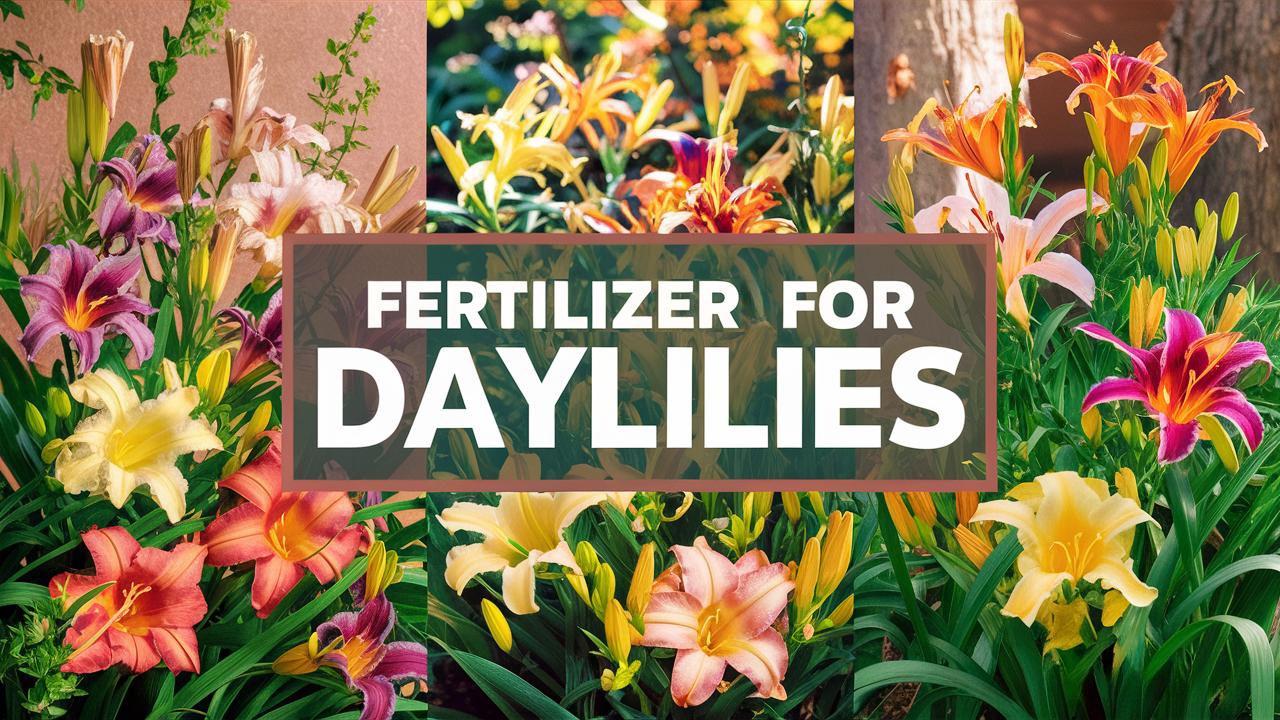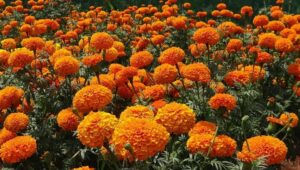This guide will help you understand how to choose the right fertilizer for daylilies to ensure they bloom beautifully season after season.
Fertilizer For Daylilies
| Image | Name | Rating | Shop |
|---|---|---|---|
 | Blossom Booster Premium Plant Food |  | |
 | Bloom Booster |  | |
 | Miracle-Gro Performance Organics Blooms Plant Nutrition Granules |  |
Blossom Booster Richard Jackson Premium Plant Food
Blossom Booster Richard Jackson Premium Plant Food seems like a good option for fertilizing daylilies. The Bio-Active Technology is likely to provide essential nutrients to promote healthy growth of your plants.
The concentrate of this fertilizer can be beneficial as it allows you to control the amount of feed according to the specific needs of your daylilies, and at 3.3lbs or 1.5kg, it’s a substantial quantity that should last for a while. Overall, Blossom Booster Richard Jackson Premium Plant Food could help ensure vibrant blooms from your daylilies.
Bloom Booster
For daylilies, a fertilizer that promotes blooming is ideal. Scotts Super Bloom Water Soluble Plant Food would work well for this purpose as it contains high phosphorus levels to help stimulate plant blooms.
The 12-55-6 NPK ratio breaks down to give your daylilies a balanced diet of nitrogen, phosphorus and potassium. To get the best results with this product, fertilize your plants every 1-2 weeks. Water-soluble formula feeds plants instantly.
Miracle-Gro Performance Organics Blooms Plant Nutrition Granules
Miracle-Gro Performance Organics Blooms Plant Nutrition Granules are a great choice when it comes to fertilizing your daylilies.
This OMRI listed plant food is specifically designed to promote blooming in flowering plants, and the results speak for themselves – vibrant flowers with more blooms than if you were to leave them unfed. With its blend of organic and natural ingredients, Miracle-Gro Performance Organics helps bring out the best color in your daylilies without using harsh chemicals. Reapply every 4-6 weeks and make sure to water regularly for optimal results, and this product will help keep your daylilies blooming beautifully all season long.
Slow Release Fertilizer
If you’re looking for a fertilizer to give your daylilies an extra boost, consider Schultz 018065 Spf48270 Slow-Release Bloom Fertilizer. This product is specifically designed to promote blooming in flowers and plants.
This slow-release fertilizer provides a balanced formula of 12-24-12 to support healthy growth and development. It’s available in a 3.5 lb size, which should be enough for most home gardens. With this fertilizer, you can expect your daylilies to thrive and produce plenty of blooms without the need for frequent applications.
Bulb-tone
Espoma’s Organic Bulb-Tone fertilizer is a great option for those looking to promote vibrant blooms on their daylilies and other spring and fall bulbs. This natural and organic fertilizer features a rich blend of the finest ingredients, including our exclusive Bio-tone formula.
This 3-5-3 fertilizer analysis with 6% Calcium makes it a safe and effective choice for use in organic gardening. With no sludges or toxic ingredients present, you can trust that Bulb-tone is environmentally friendly and suitable for your needs. When to use: Best to apply directly into the planting hole when new bulbs are planted and sprinkle on the soil surface for established plants, then water thoroughly. Easy to use and ready to apply right away.
Rapid Bloom Fertilizer
This product, Scotts Rose & Bloom Continuous Release Plant Food, 3 lb, is a suitable fertilizer for daylilies. It provides steady feeding that can promote beautiful blooms on flowering perennials like daylilies.
Given its characteristics and benefits, this fertilizer appears to be worth considering for daylily care. In one application, it feeds plants for up to 2 months, which reduces the need for frequent fertilization and makes plant maintenance easier. When used as directed, the product is safe for your plants, eliminating worries about burning or damaging them in any way.
Daylily Booster
If you’re looking for a fertilizer specifically designed for daylilies, we think 10-10-10 Natural Based Daylily Food is worth considering. Its balanced formula is tailored to meet the needs of these beautiful plants, promoting healthy growth and vibrant blooms.
This product has received attention from gardeners seeking to improve their daylily’s bloom quality and overall appearance. If you’re aiming for stunning showstoppers in your garden or simply want your daylilies to look their best, 10-10-10 Natural Based Daylily Food could be the answer.
Understanding the Nutritional Needs of Daylilies
Before diving into specific fertilizers, it’s important to know what daylilies need to thrive. Like all plants, daylilies require essential nutrients: nitrogen (N), phosphorus (P), and potassium (K). These macronutrients play vital roles:
Nitrogen (N): Promotes leafy growth and lush foliage.
Phosphorus (P): Supports root development and flowering.
Potassium (K): Enhances overall plant health and resistance to diseases.
In addition to these primary nutrients, daylilies also benefit from secondary nutrients like calcium, magnesium, and sulfur, as well as trace elements such as iron, manganese, and zinc.
Soil Testing: The First Step
Before selecting a fertilizer, conducting a soil test is crucial. A soil test will provide insights into the nutrient levels in your garden, allowing you to tailor your fertilization strategy effectively.
How to Conduct a Soil Test
Gather Samples: Collect soil samples from various spots in your garden, ideally from the depth where daylilies will root (6-8 inches).
Mix and Dry: Combine the samples, remove stones and debris, and let the mixture dry slightly.
Test the Soil: Use a home testing kit or send your samples to a local agricultural extension office for comprehensive analysis.
Analyze Results: Pay attention to the pH and nutrient levels. Daylilies prefer mildly acidic to neutral soil with a pH around 6.0 to 7.0.
With this information in hand, you can determine which nutrients your soil is lacking and choose a fertilizer that compensates for these deficiencies.
Types of Fertilizers for Daylilies
When it comes to fertilizers, they can be broadly categorized into two types: synthetic and organic. Each type has its own set of advantages and considerations.
Synthetic Fertilizers
Synthetic fertilizers are manufactured and provide rapid nutrient availability for plants. They typically come with a guaranteed analysis of N-P-K ratios, which outlines the percentage of essential nutrients.
Benefits
Fast Acting: Synthetic fertilizers often deliver quick results, making them ideal for a sudden nutrient deficiency.
Precision: You can control exactly how much of each nutrient your daylilies receive.
Consistency: They are uniform in composition, leading to predictable results.
Recommended Ratios
For daylilies, a balanced fertilizer with an N-P-K ratio such as 10-10-10 or 20-20-20 is generally effective. However, if your soil test reveals specific deficiencies, you can opt for ratios that target those areas (e.g., higher phosphorus if flowering is lacking).
Organic Fertilizers
Organic fertilizers, derived from natural sources, provide a slower release of nutrients, improving the soil structure over time.
Advantages
Soil Health: Organic fertilizers enhance soil microbial activity, leading to healthier soil in the long term.
Nutrient Release: They provide a steady supply of nutrients, reducing the risk of nutrient leaching.
Sustainability: They tend to be more environmentally friendly, making them a popular choice for eco-conscious gardeners.
Recommended Forms
Compost, well-rotted manure, bone meal (high in phosphorus), and blood meal (high in nitrogen) are excellent choices for daylilies. When using organic fertilizers, aim for a balanced approach, mixing different types to ensure all essential nutrients are covered.
Timing Your Fertilization
Fertilizing your daylilies at the right time is crucial for optimal growth and blooming.
Spring Awakening
As daylilies begin to emerge in the spring, it’s a good time to start feeding them. Use a balanced fertilizer or a slow-release organic option around mid-spring, shortly after the last frost but before the plants are in full bloom. This timing helps support the initial growth phase when nutrients are most needed.
Mid-Season Boost
In the height of summer, daylilies are actively blooming and may benefit from a second application of fertilizer. A liquid fertilizer can provide a quick nutrient boost, especially if your plants seem to be lagging or their blooms are less vibrant than expected. Dilute the liquid fertilizer to half-strength and apply every few weeks to encourage continued prolific blooming.
Fall Care
As summer wanes, reduce fertilization. Daylilies do not require much nourishment for dormancy. However, you can incorporate some organic matter into the soil to improve its structure for the next growing season.
Application Techniques for Fertilizer
How you apply fertilizer can greatly influence its effectiveness. Here are some techniques for both synthetic and organic options.
Granular Fertilizers
For granular fertilizers, apply them evenly around the base of the daylilies, keeping them a few inches away from the stems to avoid burning the plants. Water the area afterward to help the nutrients penetrate the soil and reach the roots.
Liquid Fertilizers
Liquid fertilizers should be diluted according to package instructions. Apply during the cooler parts of the day, either early morning or late afternoon, to prevent leaf burn from the sun. Focus on watering the root zone to maximize nutrient absorption.
Fertilizing in Containers
If you’re growing daylilies in pots, it’s important to fertilize them more frequently, as container plants can quickly deplete soil nutrients. Use a water-soluble fertilizer every two to four weeks during the growing season, monitoring plant health for any signs of nutrient deficiency.
Signs of Nutritional Deficiency
Being attentive to your daylilies can inform you if your fertilization strategy is effective or needs adjustment. Look for these common signs of nutrient deficiencies:
Yellowing Leaves: Often a symptom of nitrogen deficiency. If older leaves are yellow while new growth remains green, it’s time for a nitrogen boost.
Poor Flowering: If your daylilies produce fewer flowers than expected, a phosphorus deficiency could be to blame. Consider switching to a fertilizer with higher phosphorus content.
Stunted Growth: If the plants appear smaller than usual, they may need more balanced nutrients or a soil amendment to improve growth conditions.
Recognizing these signs can help you act swiftly to remedy any nutritional shortfalls.
Special Considerations for Hybrid Daylilies
As hybrids of daylilies become more popular, it’s essential to understand that they may have slightly different nutrient requirements depending on their lineage. Research the specific needs of hybrid varieties for optimal results.
Unique Hybrid Needs
Some hybrid daylilies may exhibit increased demands for certain nutrients or may be more tolerant of specific soil conditions. Joining gardening forums, visiting local nurseries, or consulting hybrid breeders can offer valuable guidance on caring for these specialized plants.
Sustainable Fertilization Practices
If you’re looking for an eco-friendly approach to fertilizing your daylilies, consider implementing sustainable practices that contribute to the garden’s overall health.
Composting
Creating your own compost is an excellent way to recycle kitchen scraps and yard waste while providing slow-release nutrients to your plants. Incorporating homemade compost into your daylily beds each spring can greatly enhance soil quality over time.
Mulching
Applying organic mulch, such as wood chips or straw, can help retain moisture and suppress weeds while adding nutrients back to the soil as it breaks down. This method reduces the need for fertilizers, creating a self-sustaining garden environment.
Crop Rotation and Companion Planting
Incorporating principles of crop rotation and companion planting can naturally enhance soil health and reduce pest problems. Consider planting daylilies alongside companions that enrich the soil or that contribute beneficial nutrients.









